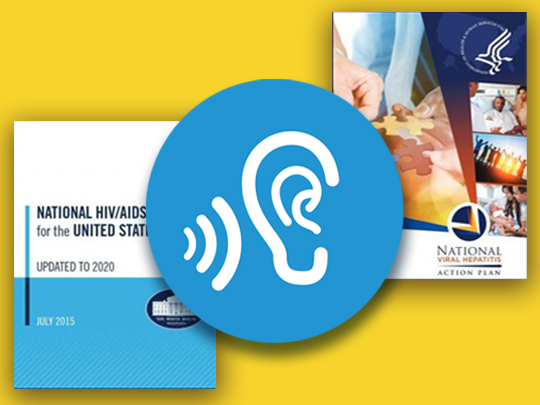Virtual Listening Session Gathered Additional Stakeholder Input on Next National HIV and Viral Hepatitis Strategies
Topics

HIV and viral hepatitis community stakeholders offered a rich variety of input on developing the next iterations of both the National HIV/AIDS Strategy and National Viral Hepatitis Action Plan during a virtual listening session on January 29, 2019. OHAIDP facilitated the session, which gathered over 330 people or groups on the line.
The participants represented a wide variety of HIV and viral hepatitis stakeholders, including health department leaders, physician educators, advocates, researchers, staff from community health centers and Ryan White HIV/AIDS Programs, and others. Their recommendations reflected the diversity of their work and experiences and addressed many aspects of each of the national strategies. Their recommendations included the following topic areas for these two national strategies:
- Integration of HIV, viral hepatitis, and STD prevention, testing, and treatment and models and education to support these efforts;
- Funding for viral hepatitis surveillance;
- The indicators used to measure progress and full implementation of both national strategies;
- Rapid linkage to care with same-day medication initiation for individuals diagnosed with HIV;
- Expansion of harm-reduction efforts;
- Research on a HCV vaccine and perinatal HCV transmission and prevention;
- Covering the cost of PrEP medication and required periodic clinic visits and tests; and
- HIV, HBV, and HCV-related discrimination.
The interagency workgroups developing the next iterations of each of these national strategies will consider stakeholders’ important input.
This virtual listening session was part of a series of opportunities for stakeholders to provide ideas and feedback about these national strategies, the current versions of which expire in 2020. If you would like to share your thoughts, we are also gathering written comments until March 11. Read more about how to submit written comments.